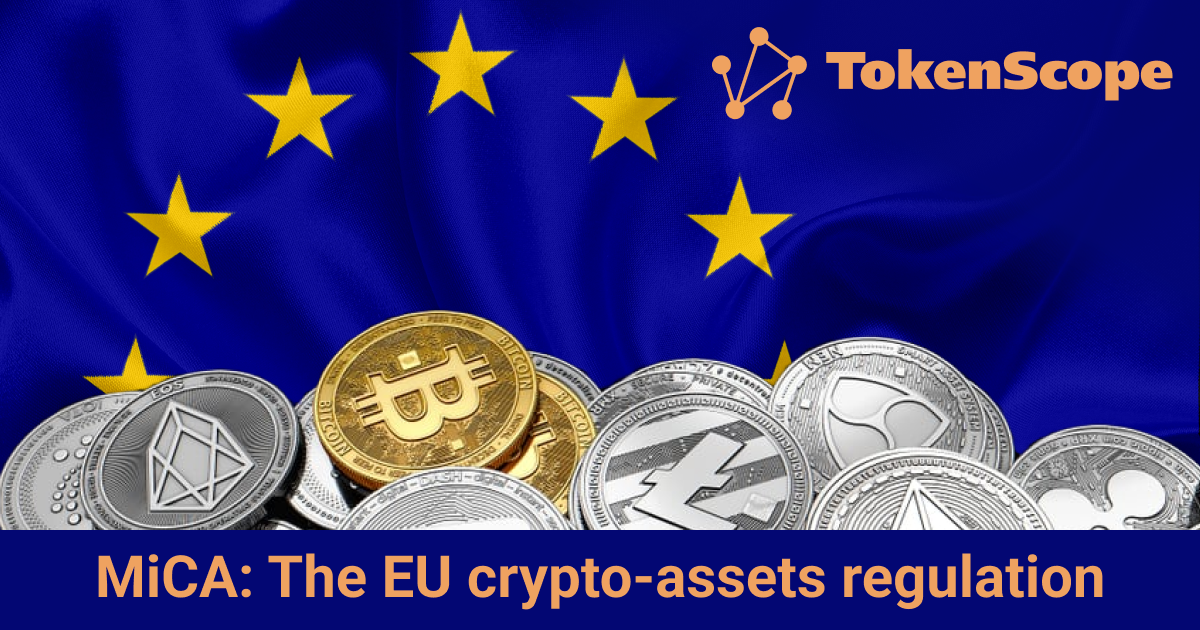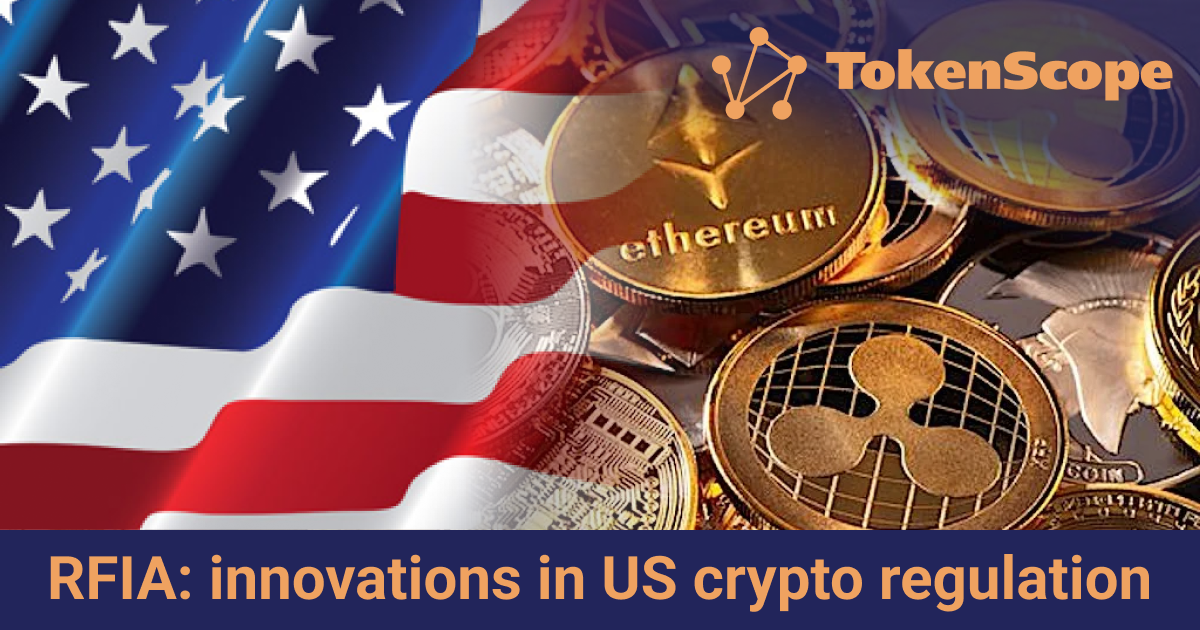Crypto regulation in the world: weekly digest #106

USA
The U.S. Senator Cynthia Lummis is proposing significant legislation aimed at integrating Bitcoin into the U.S. financial system as a strategic reserve asset for the Federal Reserve. This initiative seeks to bolster the U.S. dollar's strength by allowing the Fed to hold Bitcoin alongside traditional reserves such as gold and foreign currencies.
Lummis's bill, if supported, would establish a strategic reserve of Bitcoin, similar to how countries maintain reserves of oil or gold. The proposal is motivated by concerns over inflation and the devaluation of the U.S. dollar, particularly in light of expansive monetary policies by central banks worldwide. Lummis believes that Bitcoin could serve as a hedge against these economic pressures, providing a new tool for monetary policy.
While Lummis is actively seeking co-sponsorship for her bill, the proposal has sparked debate. Critics point to Bitcoin's volatility and regulatory uncertainties as potential risks of integrating it into national reserves. There are concerns that this move could undermine the traditional financial system and complicate the Fed's monetary policy operations.
Another U.S. Senator, Elizabeth Warren, who is well-known as a bitcoin-skeptic, has proposed a ban on foreign-owned cryptocurrency mining operations, particularly targeting those linked to China, citing national security concerns. During a recent Senate Committee hearing, she expressed that these foreign mining facilities could be utilized for espionage and pose risks to the U.S. energy grid and environment. Warren emphasized that foreign entities are acquiring U.S. crypto mines using cryptocurrencies, which allows them to bypass traditional banking systems and anti-money laundering regulations, thus increasing the risk of financial stability.
Warren argues that foreign-owned crypto mines, especially those with ties to China, threaten U.S. military operations and could lead to significant national security vulnerabilities. She mentioned instances where these mines are located near critical infrastructure, such as military bases, raising alarms about potential intelligence collection operations.
The senator also highlighted the environmental impact of these mining operations, which consume large amounts of electricity and could strain local power grids. She called for stricter regulations on these facilities to mitigate their environmental footprint and protect energy resources.
While both proposals address significant issues—financial innovation and national security—their paths to becoming law may diverge. Lummis's initiative could benefit from a growing acceptance of cryptocurrencies, while Warren's focus on security might resonate with a broader range of lawmakers concerned about foreign influence. Ultimately, the success of either proposal will depend on the ability of their proponents to navigate the complexities of the legislative process, build coalitions, and address the concerns of skeptics within Congress and the public.
India
India plans to release a discussion paper outlining its policy stance on cryptocurrencies before September 2024. The paper will be the result of consultations with relevant stakeholders and will aim to establish a consensus on the way forward for regulating cryptocurrencies in the country.
India's stance on cryptocurrencies has been cautious and conservative so far. Regulators like the RBI have warned that cryptocurrencies pose risks to financial stability and could undermine the country's monetary policy. The government has investigated crypto exchanges for tax evasion and money laundering.
India currently lacks specific legislation on cryptocurrencies, with the government stating that effective regulation requires international cooperation. Attempts to ban cryptocurrencies were overturned by the Supreme Court. Also, the country has imposed a 30% tax on profits from crypto transactions and a 1% tax deducted at source on every transaction, which is seen as an attempt to dampen crypto trading rather than legitimize it.
India is in the process of implementation of its own digital currency, the e-Rupee that has been launched in 2023 under the RBI’s control suggesting it wants to control the purpose and counterparties of digital asset transactions.
The upcoming discussion paper is expected to provide more clarity on India's crypto policy direction, but major changes are unlikely in the near term, regardless of the outcome of the ongoing national elections. The best-case scenario for a holistic policy framework is around the end of 2024, as the government transitions into governing after the election results.
Switzerland
The Swiss Financial Market Supervisory Authority (FINMA) has recently issued new guidance on stablecoin issuers, focusing on the associated risks and regulatory requirements. This guidance addresses key areas such as default guarantees, anti-money laundering measures, and the implications for financial intermediaries.
FINMA highlights the increased risks of money laundering, terrorist financing, and sanctions evasion linked to stablecoin projects. These risks not only affect the issuers but also pose reputational threats to the Swiss financial sector as a whole. Stablecoin issuers are classified as financial intermediaries under AML regulations. They are required to verify the identities of all token holders and establish the identity of beneficial owners. If there are doubts about a customer's identity, the verification must be repeated.
Many stablecoin projects in Switzerland utilize default guarantees from banks, which may allow them to circumvent the need for a banking license. However, this arrangement introduces risks for both the stablecoin holders and the banks providing these guarantees. FINMA has outlined minimum requirements for these guarantees to protect depositors, ensuring that the guarantees cover the total amount of deposits and accrued interest.
The guidance emphasizes that banks offering guarantees for stablecoin deposits must carefully assess the risks involved. Any issues faced by the stablecoin issuer could lead to reputational damage and potential legal challenges for the banks. This guidance builds on FINMA's previous comments regarding stablecoins, particularly its 2019 supplement to ICO guidelines, which addressed regulatory frameworks for initial coin offerings.
News from other countries:
-
The Philippines has officially adopted Tether's USDT stablecoin for contributions to its Social Security System, marking a significant development in the integration of cryptocurrency into government services. This initiative allows Filipino citizens to make their SSS payments using USDT on TON blockchain, facilitated by a partnership with the Web3 platform Uquid.
-
Russia is set to adopt a new law to regulate cryptocurrency mining in the country. The State Duma, Russia's lower house of parliament, has passed a bill in its first reading that aims to legalize and oversee digital currency mining within Russia. The proposed legislation is expected to bring significant changes to Russia's cryptocurrency landscape, promoting legal and controlled mining activities. If adopted, the law will come into effect on September 1, 2024.
-
The U.S. SEC has approved several spot Ethereum ETFs, which are set to debut on Tuesday, July 23, 2024. This marks a significant milestone for the cryptocurrency market, coming roughly six months after the launch of spot Bitcoin ETFs in January 2024.
We continue to highlight the news of the world of crypto regulation worldwide. Please stay with us!




